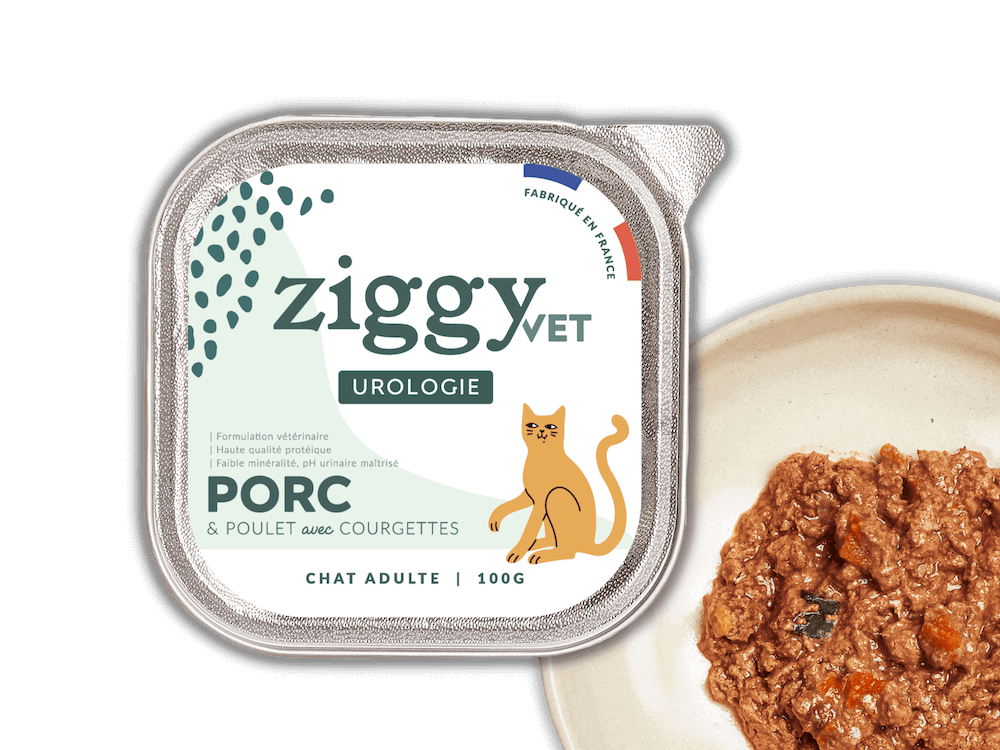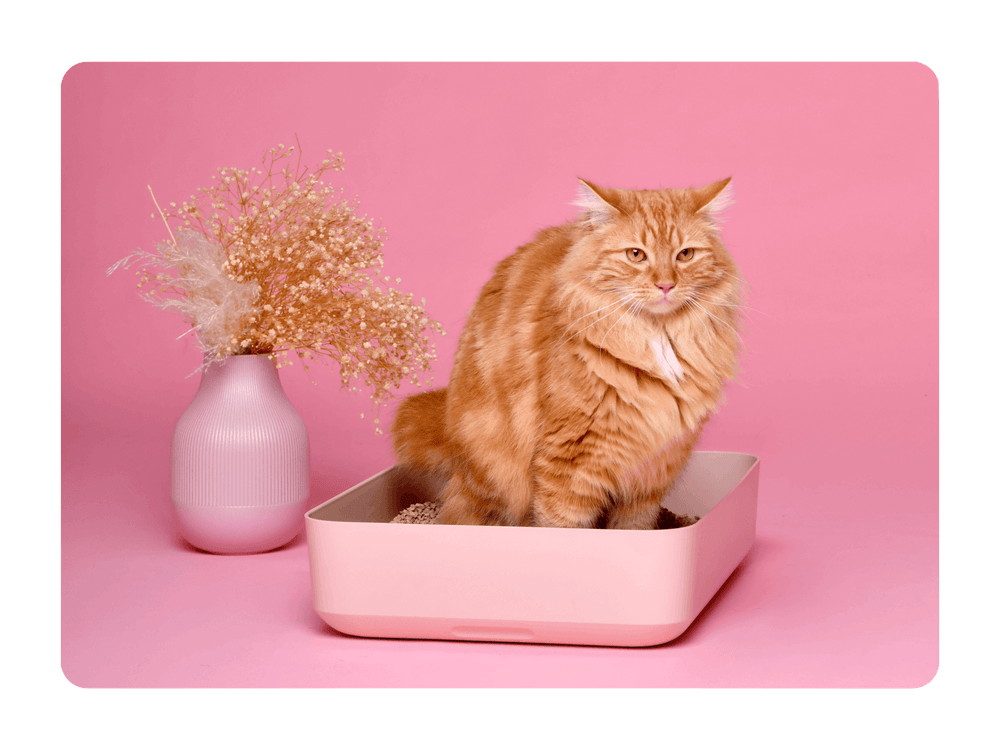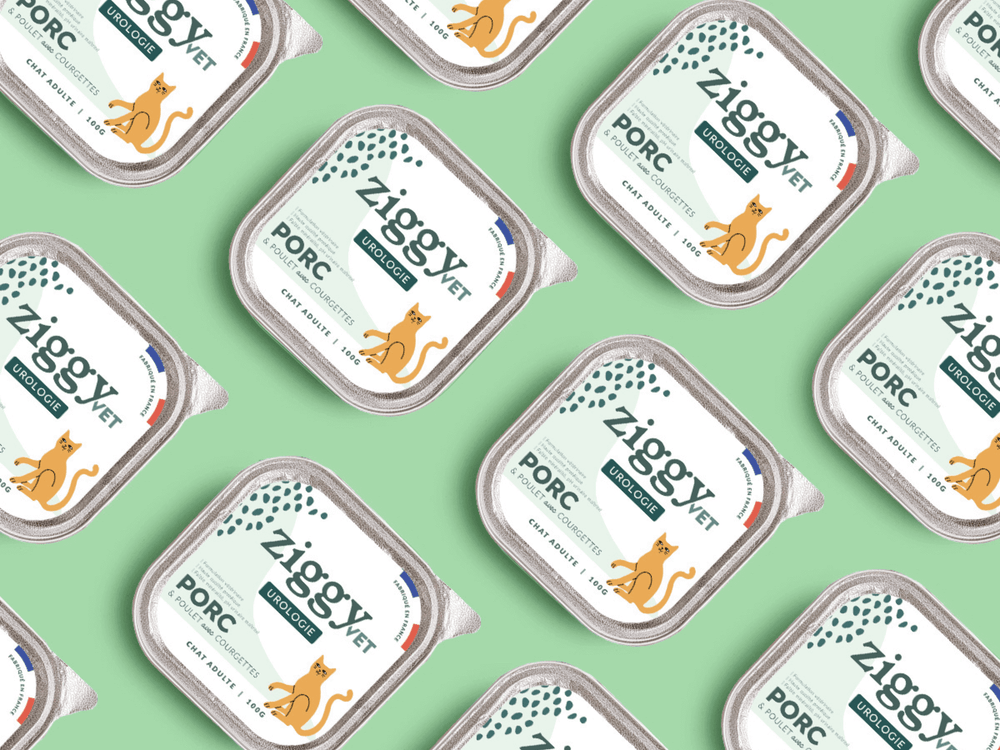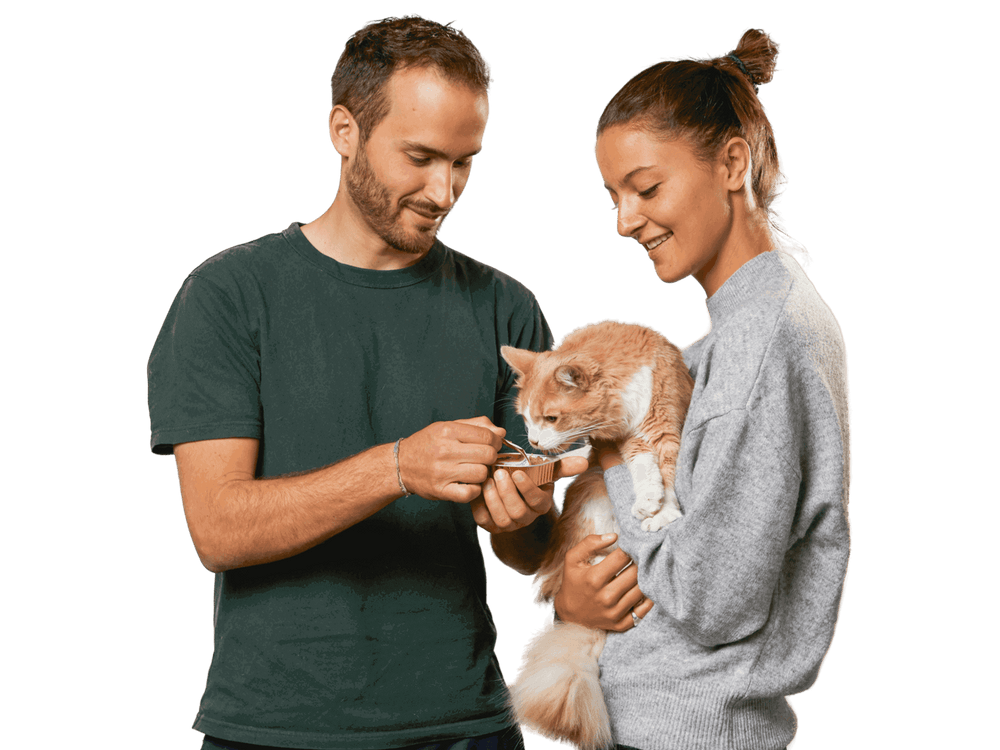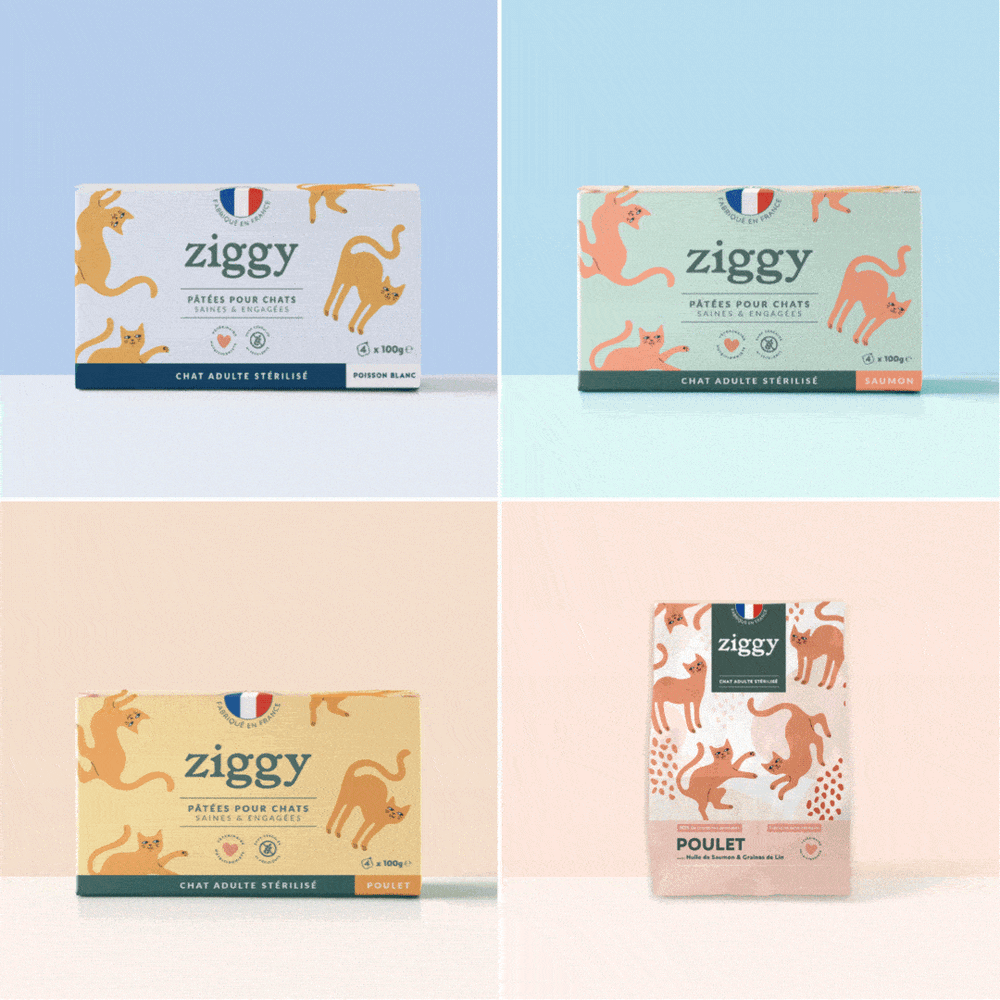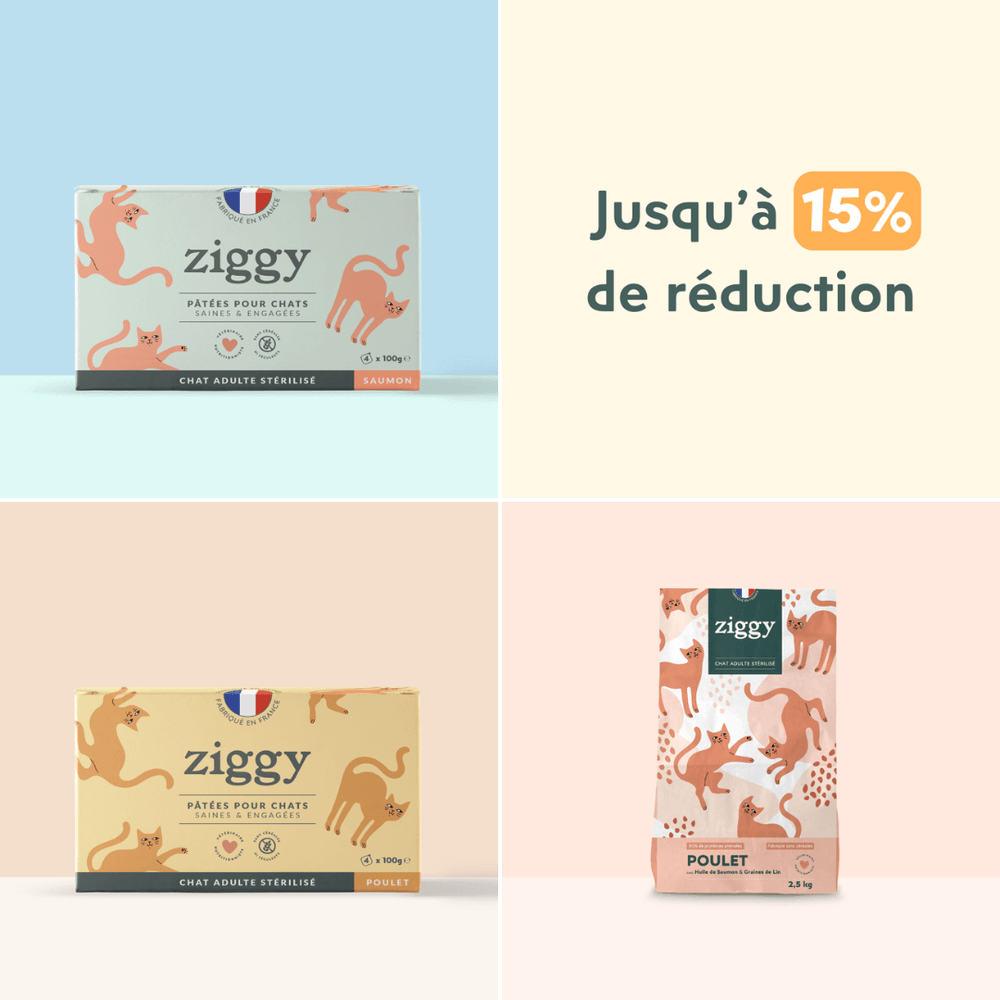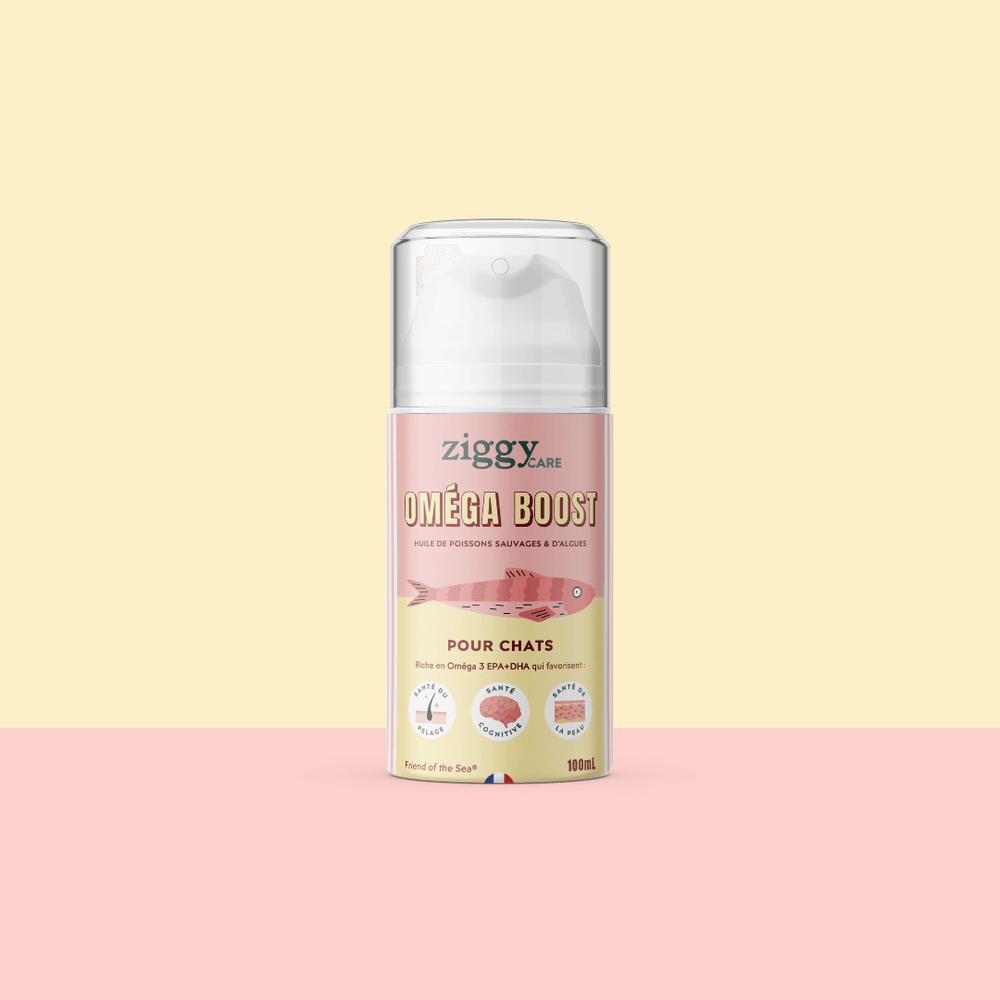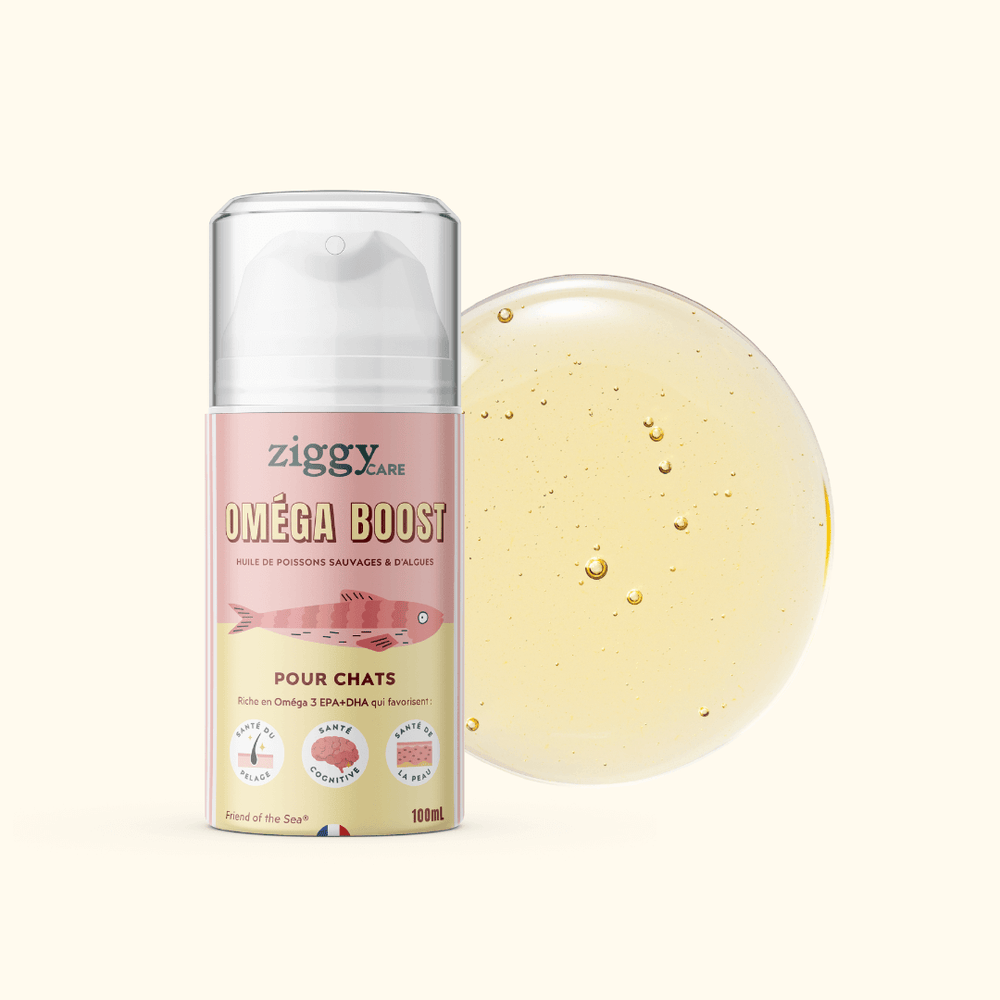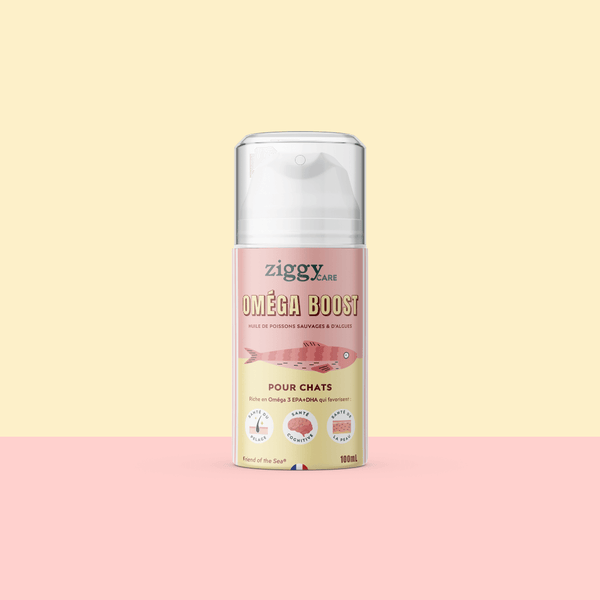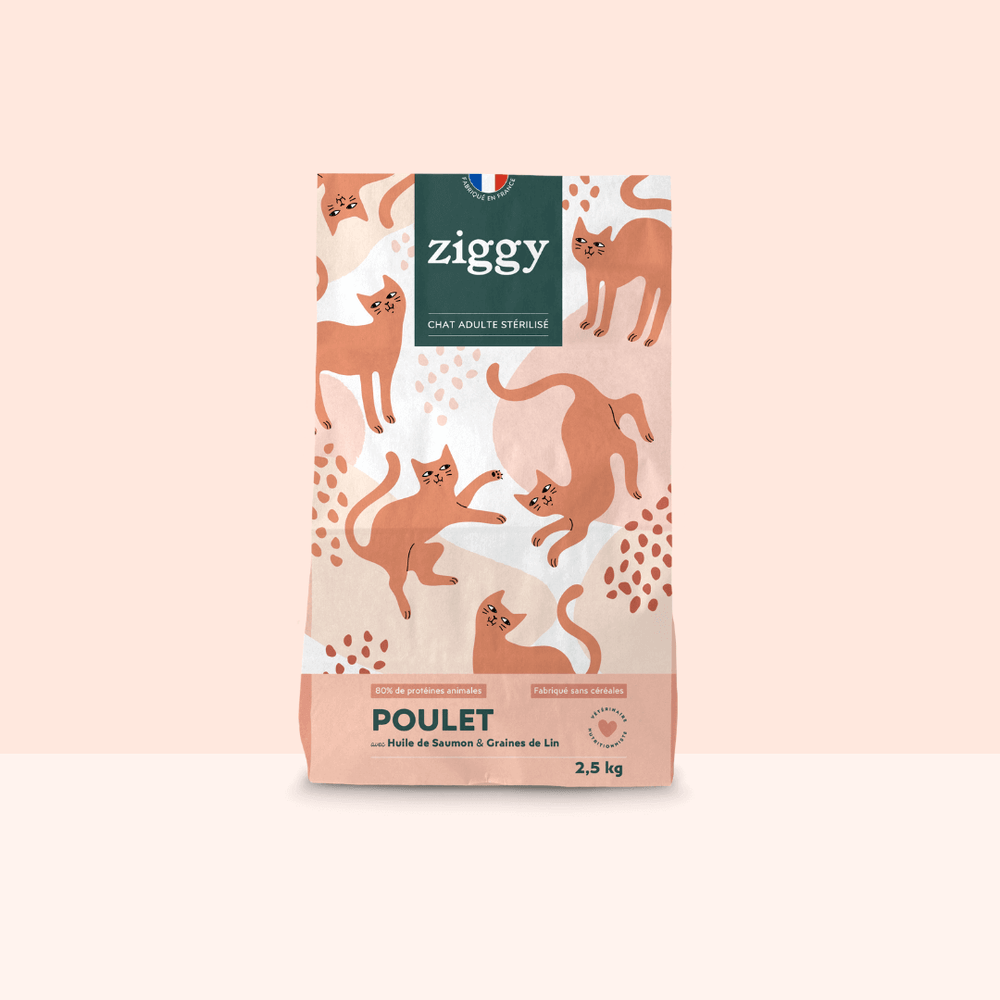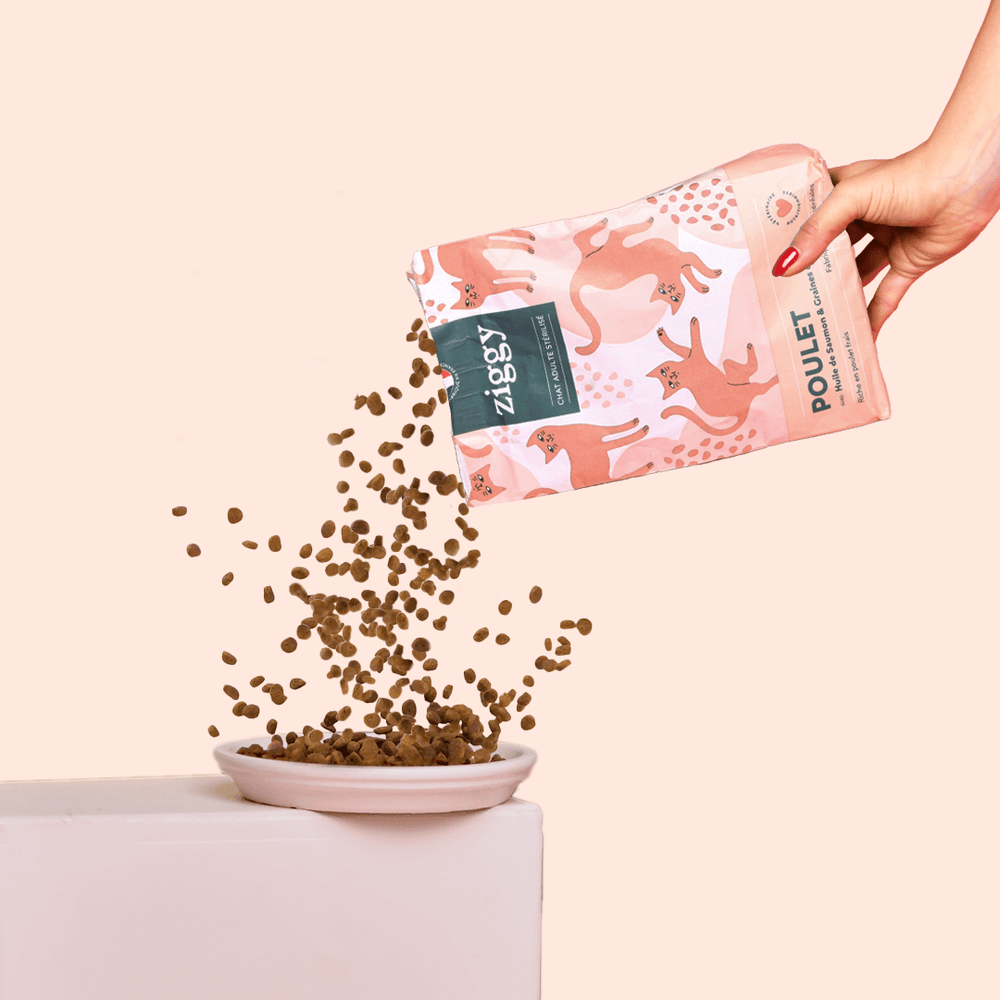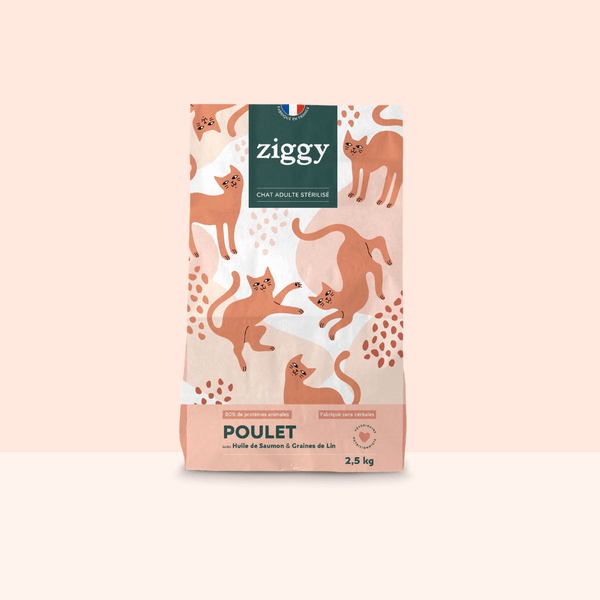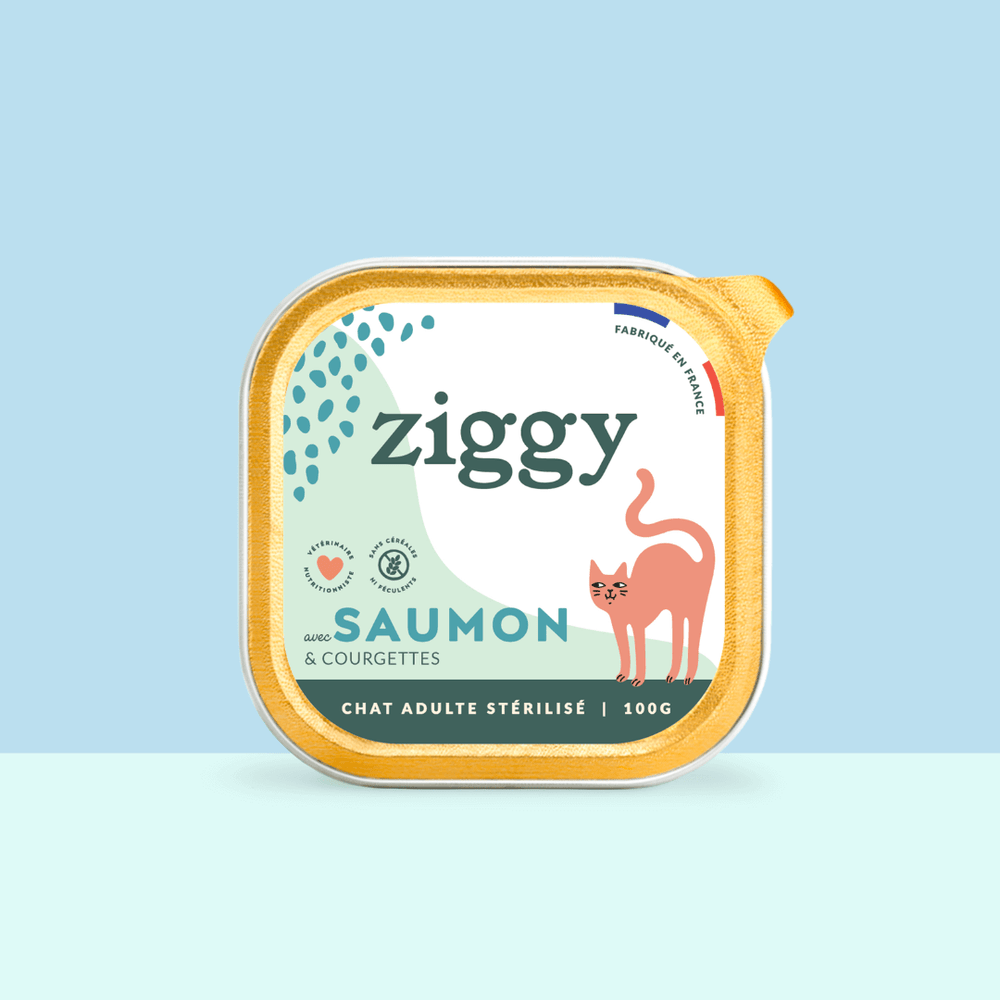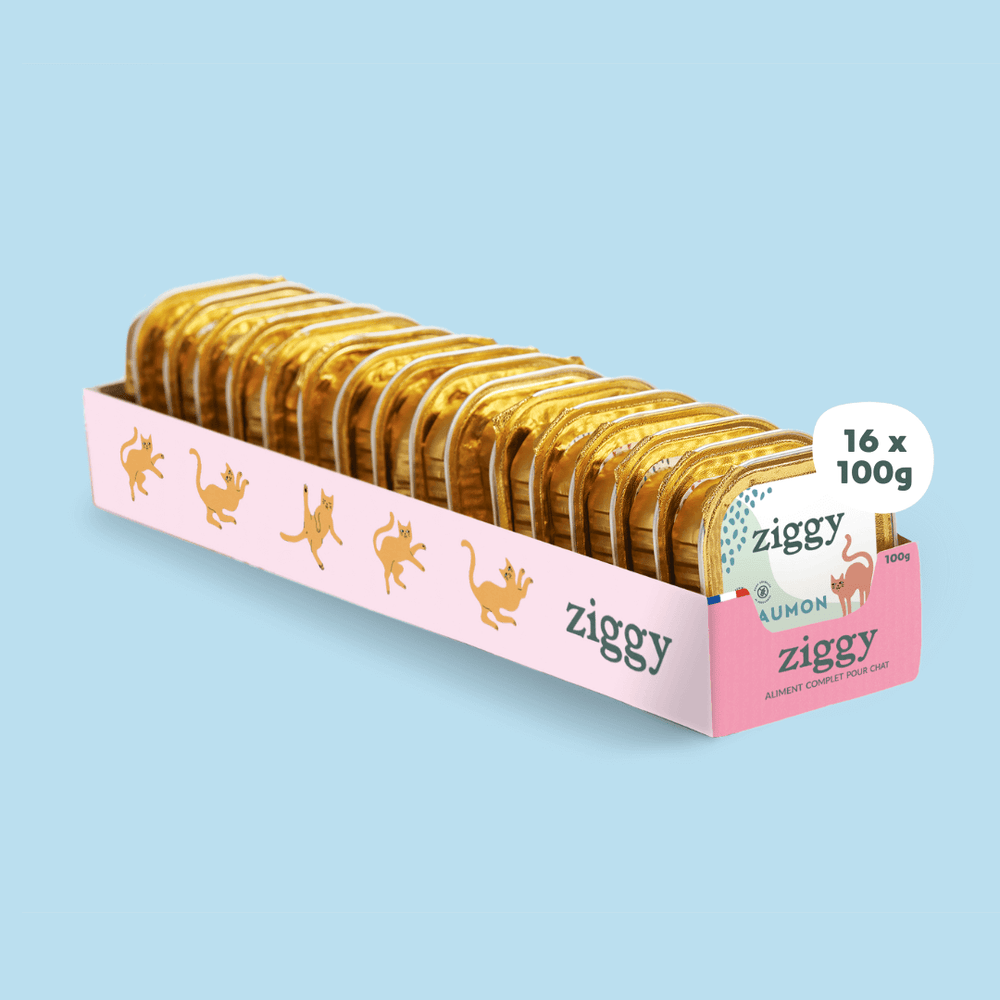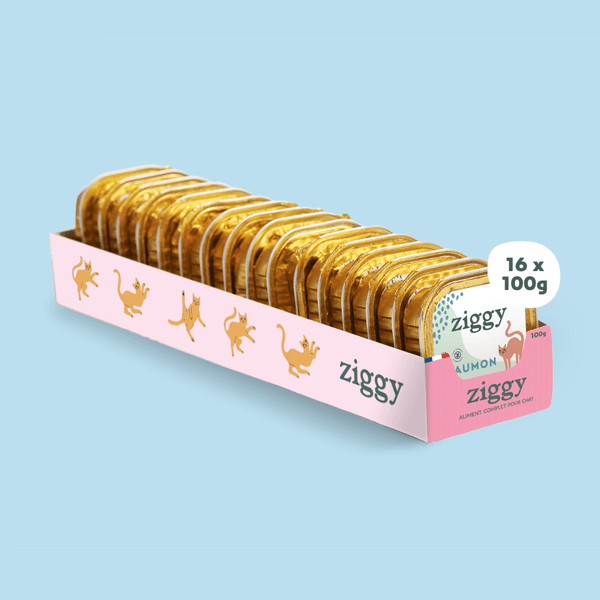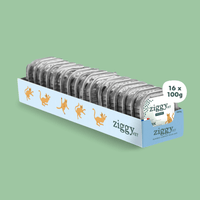
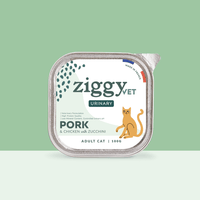
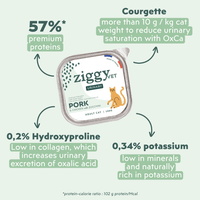
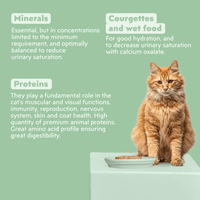
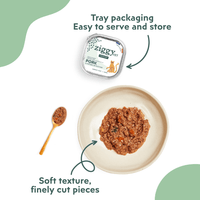
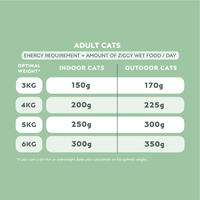
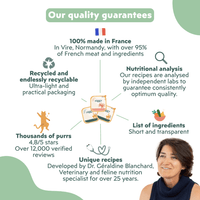
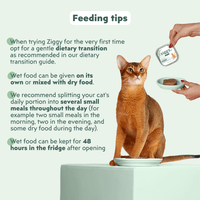

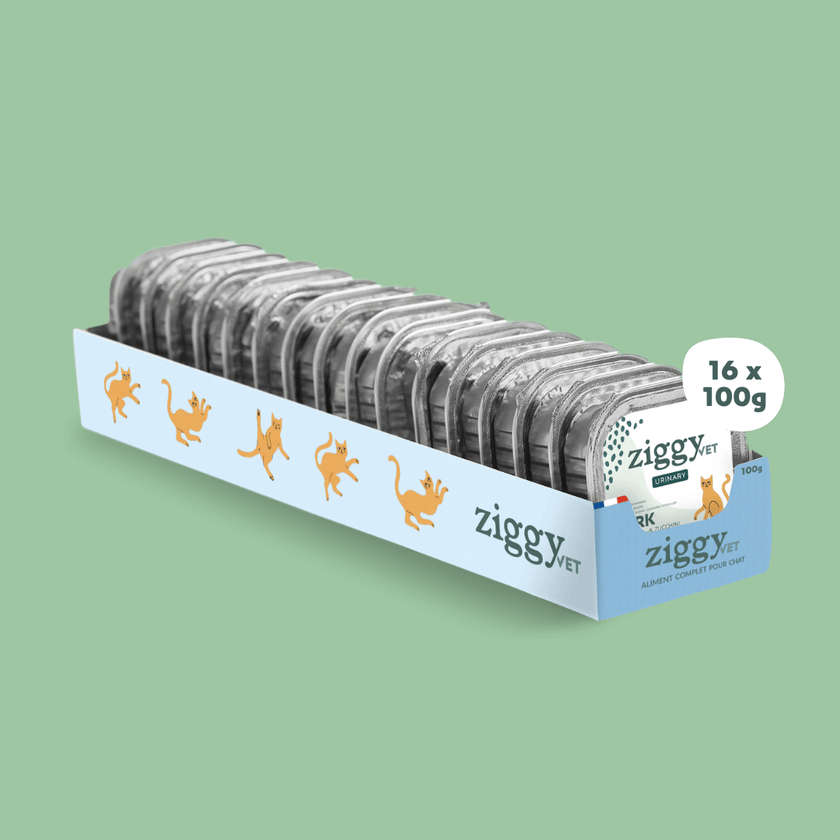
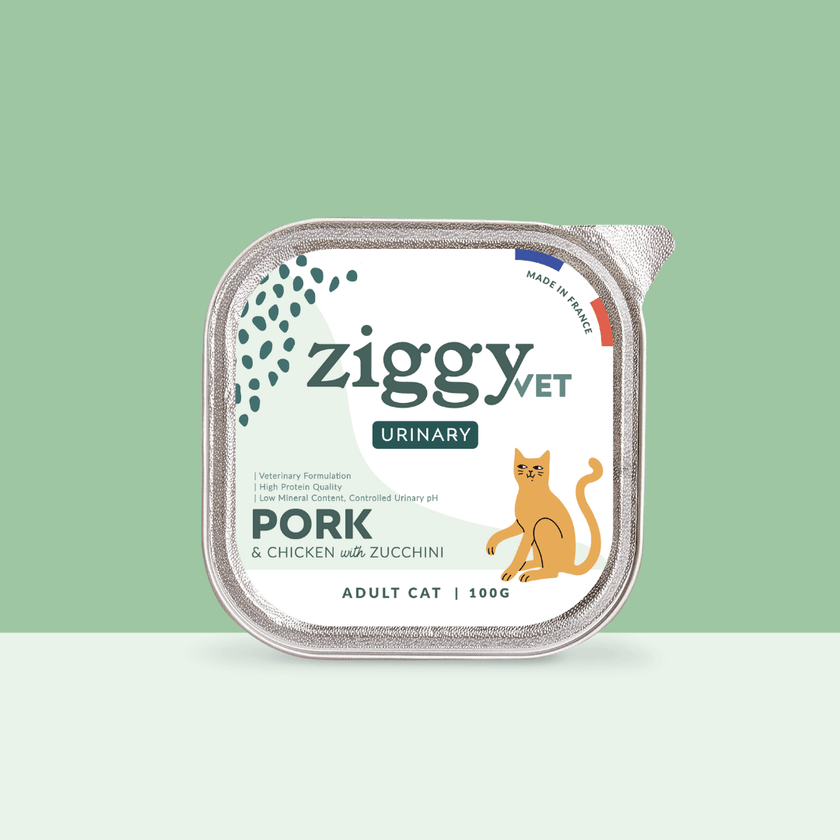
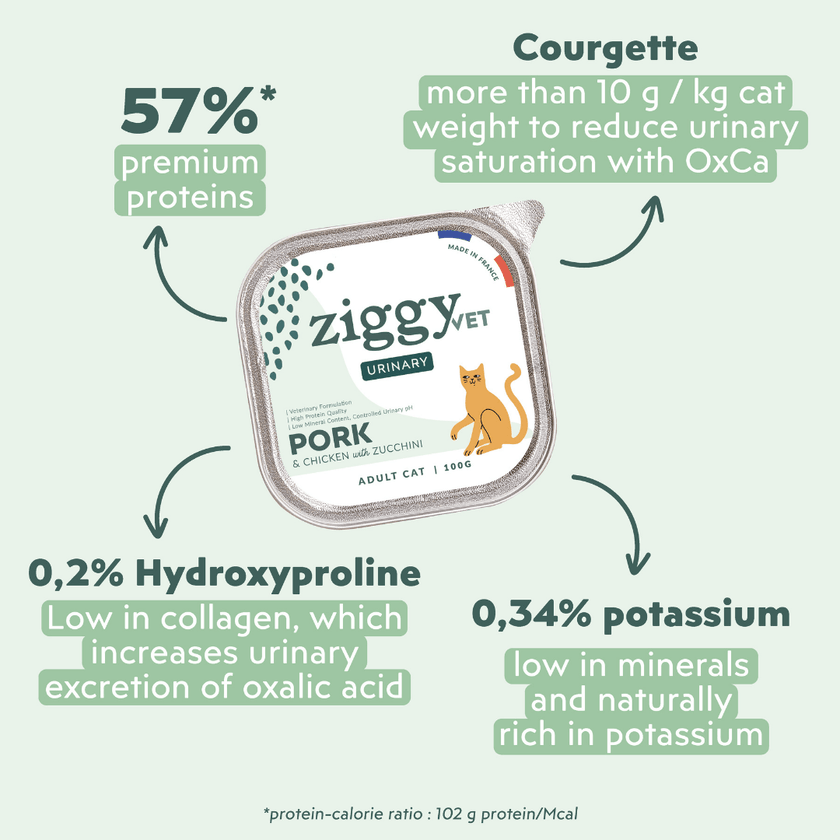
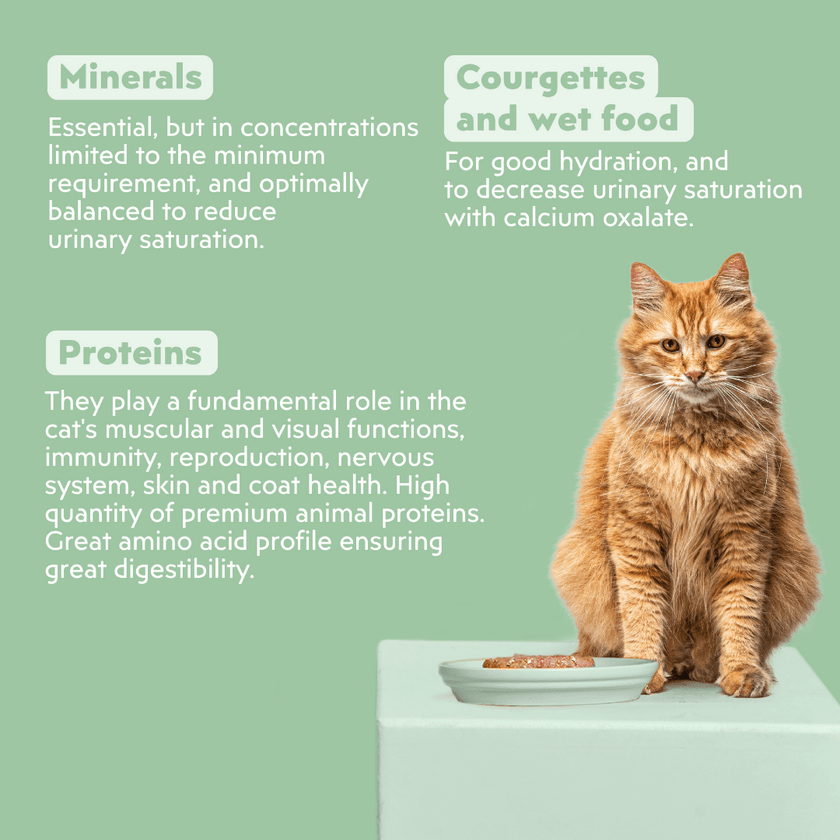
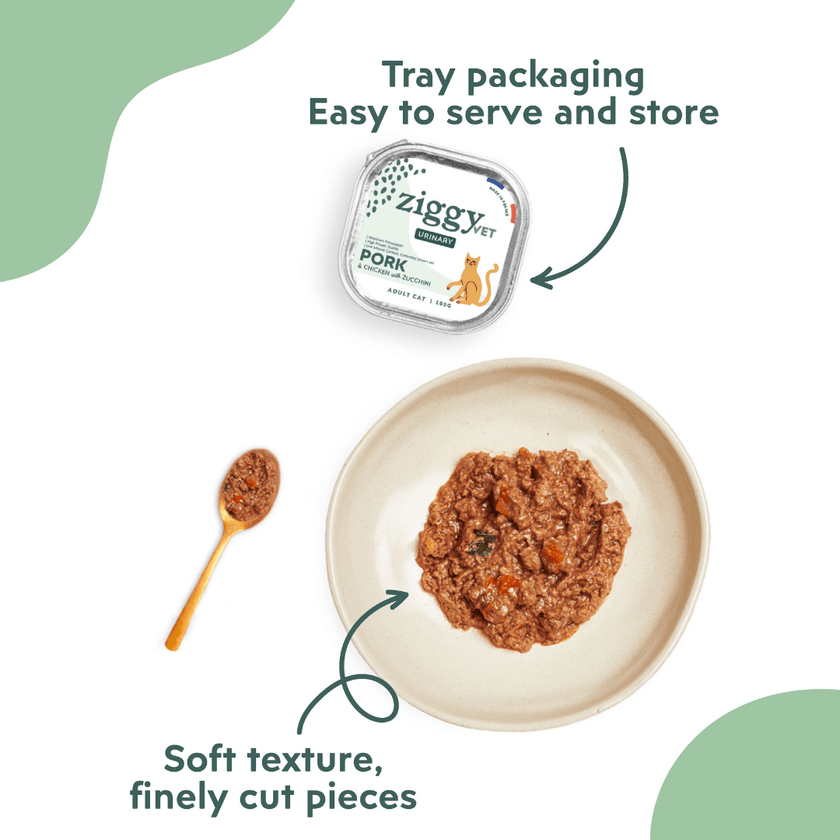

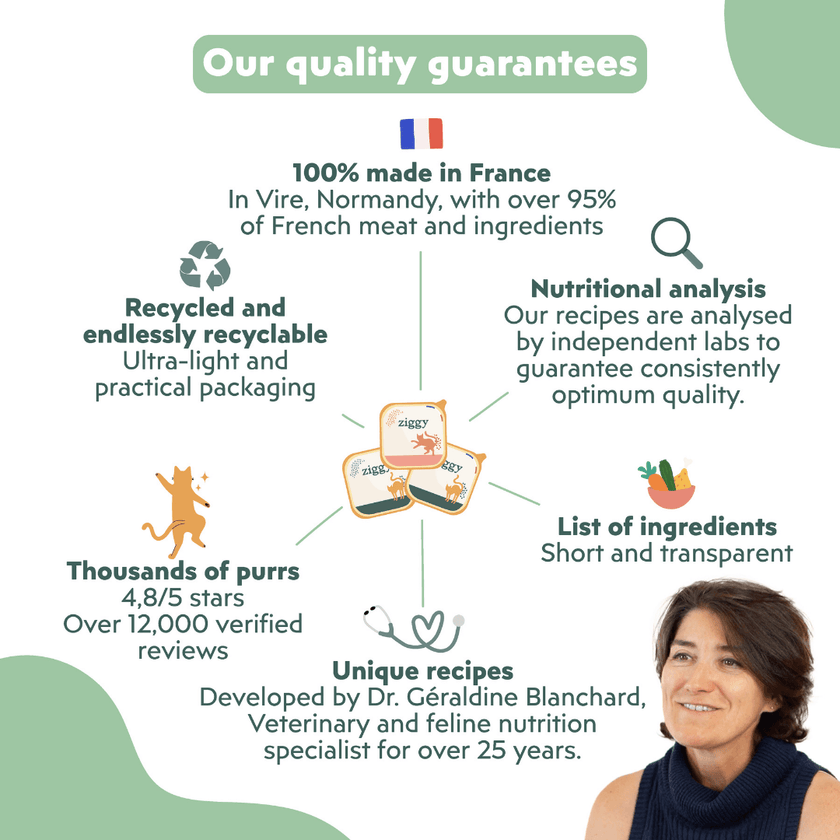
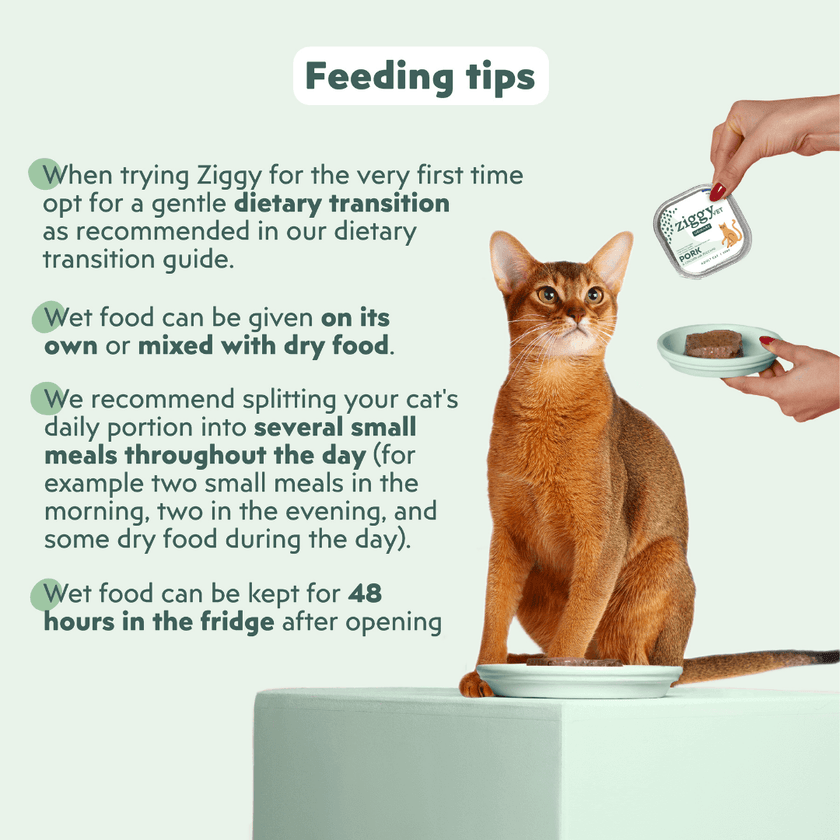

Urinary Wet Food for Cats Pork
A wet food for adult cats with a history of urinary problems, developed by our vet and specialist in clinical nutrition, Dr. Géraldine Blanchard.
Ziggy VET Urology wet food has been specifically developed to support the urinary function of cats with urinary problems (idiopathic cystitis, reduction of struvite stone formation, and calcium oxalate stones).
Tasty and indulgent, Ziggy VET wet food for cats with urinary problems is packed with high-quality proteins, highly digestible, and designed to support your feline friend’s health—keeping him happy and purring with delight!
A wet food for adult cats with a history of urinary problems, developed by our vet and specialist in clinical nutrition, Dr. Géraldine Blanchard.
Ziggy VET Urology wet food has been specifically developed to support the urinary function of cats with urinary problems (idiopathic cystitis, reduction of struvite stone formation, and calcium oxalate stones).
Tasty and indulgent, Ziggy VET wet food for cats with urinary problems is packed with high-quality proteins, highly digestible, and designed to support your feline friend’s health—keeping him happy and purring with delight!
- Pork 54% (Heart, Lobe)*
- Water
- Chicken 14.5% (Heart, Liver)
- Dehydrated courgettes 2.5%
- Minerals
- Rapeseed Oil
- Fish Oil
- Calcium Carbonate
- Thyme
*Sources of essential fatty acids
% of raw matter:
(Compare with dry food by checking the % of dry matter just below)
- Crude protein: 12%
- Crude fat: 6%
- Crude ash (minerals): 1.5%
- Crude fibre: 1.27%
- NNE (Carbs): <0.5%
- Humidity: 79%
- Calcium: 0.17%
- Phosphorus: 0.16%
- Ca/P: 1.06
- Potassium: 0.34%
- Sodium: 0.20%
- Chloride: 0.33%
- Magnesium: 0.03%
- Animal Proteins 100%
- Hydroxyproline: <0.2%
- Fatty acids:
- Omega 6: 0.9% (including linoleic acid: 7.9g/McalME, arachidonic acid: 1g/McalME)
- Omega 3: 0.2% (including alpha-linolenic acid 1.4g/McalME, EPA + DHA: 0.5g/McalME)
Protein-to-calorie ratio: 117.65 g/McalME (= Crude protein/Metabolisable Energy * 1000)
Protido-phosphorus ratio: 75
Metabolisable energy: 102 kcalME/100g
% of dry matter:
- Protein: 57.1%
- Fat: 28.6%
- Ash (minerals): 7.1%
- Fibre: 6.2%
- NNE (Carbs): <2%
Complete dietary food for cats with urinary problem
- Manganese (3b503) 3 mg
- Zinc (3b607 & 3b605) 38 mg
- Iodine (3b203) 0.51 mg
- Selenium (E8 & 3b811) 19 μg
- Vitamin D3 (3a671) 194 IU
- Vitamin E (3a700) 466 mg
- Vitamin B1 (3a821) 65 mg
- Vitamin B2 47 mg
- Vitamin B3 (3a315) 466 mg
- Pantothenic Acid (3a841) 86 mg
- Vitamin B6 (3a831) 37 mg
- Biotin (3a880) 116.4 μg
- Folic Acid (3a316) 11.64 mg
- Vitamin B12 279 μg
- Choline (3a890) 58 mg
- Taurine (3a370) 660 mg





